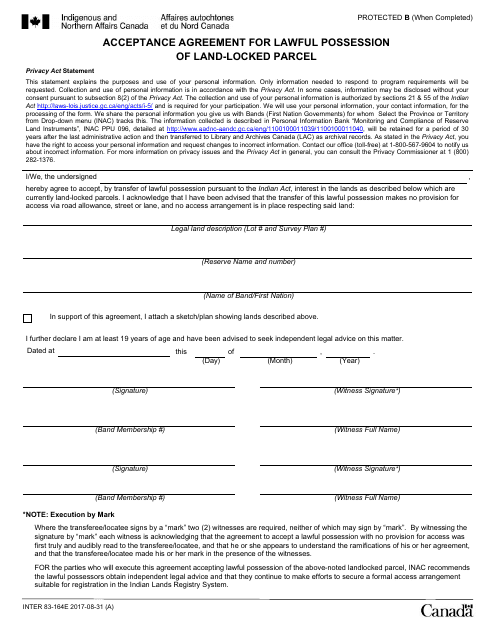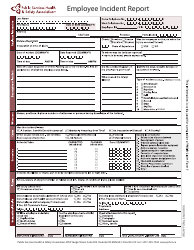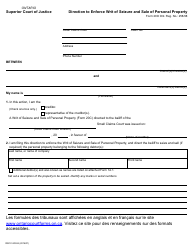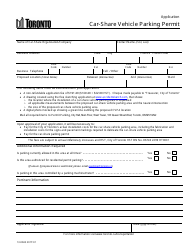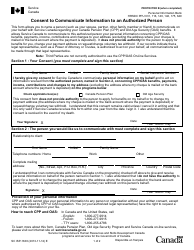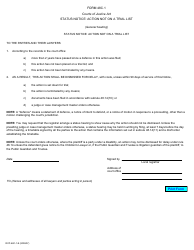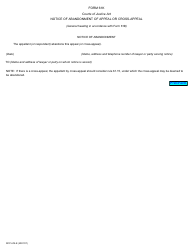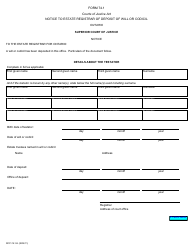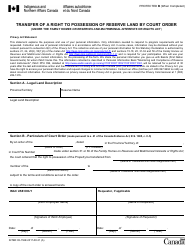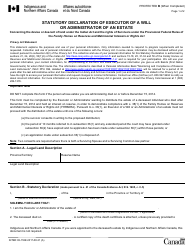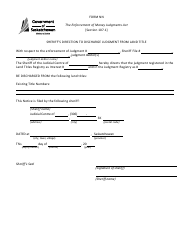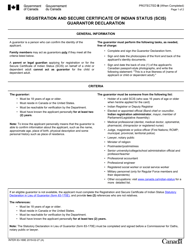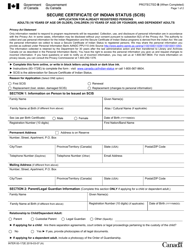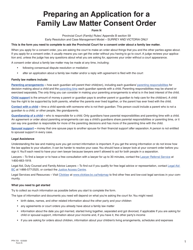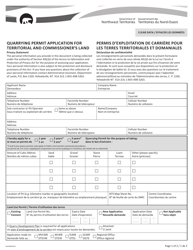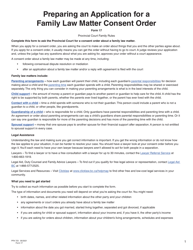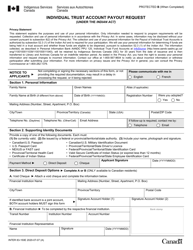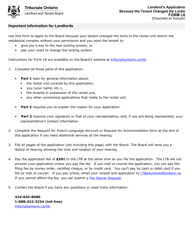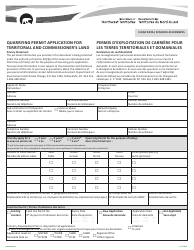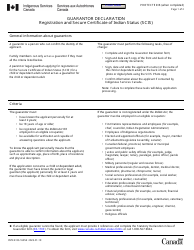Form INTER83-164E Acceptance Agreement for Lawful Possession of Land-Locked Parcel - Canada
The Form INTER83-164E Acceptance Agreement for Lawful Possession of Land-Locked Parcel in Canada is a legal document used when a parcel of land is surrounded by other land and does not have direct access to a public road. This form is used to formalize an agreement between the owner of the land-locked parcel and the owner of the adjoining land, granting the land-locked parcel owner legal access to their property through the adjoining land. It ensures that both parties understand and agree to the terms and conditions for accessing the land-locked parcel.
The Form INTER83-164E Acceptance Agreement for Lawful Possession of Land-Locked Parcel in Canada is typically filed by the party seeking lawful possession of the land-locked parcel. This could be an individual, organization, or business entity.
FAQ
Q: What is form INTER83-164E?
A: Form INTER83-164E is an Acceptance Agreement for Lawful Possession of a Land-Locked Parcel in Canada.
Q: What is the purpose of form INTER83-164E?
A: The purpose of form INTER83-164E is to legally grant possession of a land-locked parcel in Canada.
Q: Who should use form INTER83-164E?
A: Form INTER83-164E should be used by individuals or entities who are seeking lawful possession of a land-locked parcel in Canada.
Q: Is form INTER83-164E specific to a certain province in Canada?
A: No, form INTER83-164E is a generic form that can be used in any province in Canada.
Q: Are there any fees associated with submitting form INTER83-164E?
A: There may be fees associated with submitting form INTER83-164E. The specific fees can vary depending on the province and the size of the land-locked parcel.
Q: What information is required on form INTER83-164E?
A: Form INTER83-164E typically requires information such as the legal description of the land-locked parcel, the name and contact details of the applicant, and any supporting documentation.
Q: Are there any specific regulations or requirements for obtaining lawful possession of a land-locked parcel in Canada?
A: The regulations and requirements for obtaining lawful possession of a land-locked parcel can vary depending on the province. It is advisable to consult with the relevant provincial land office or seek legal advice for specific provisions.
Q: What happens after submitting form INTER83-164E?
A: After submitting form INTER83-164E, it will be reviewed by the provincial land office. If the application is approved, the applicant will be granted lawful possession of the land-locked parcel.
Q: Can form INTER83-164E be used to resolve disputes over land-locked parcels?
A: Form INTER83-164E primarily deals with the lawful possession of land-locked parcels. If there are disputes or conflicts over ownership or access rights, it is recommended to seek legal advice for appropriate legal remedies.
Q: Is form INTER83-164E applicable to other types of properties in Canada?
A: No, form INTER83-164E is specifically designed for land-locked parcels and may not be applicable to other types of properties in Canada.
Q: Is it necessary to hire a lawyer to complete form INTER83-164E?
A: While it is not mandatory to hire a lawyer, it is advisable to seek legal advice or assistance to ensure compliance with relevant laws and regulations.
Q: Can form INTER83-164E be modified or customized?
A: Form INTER83-164E is a standard form and should not be modified or customized without proper legal guidance.
Q: What is the validity period of the acceptance agreement?
A: The validity period of the acceptance agreement can vary depending on the province and specific circumstances. It is advisable to consult with the provincial land office or a lawyer to determine the applicable validity period.
Q: Are there any restrictions on what can be done with a land-locked parcel?
A: There may be certain restrictions or regulations on the usage or development of a land-locked parcel. It is important to consult with the provincial land office or conduct research on local zoning and land use regulations.
Q: What should I do if my application for lawful possession of a land-locked parcel is denied?
A: If your application for lawful possession of a land-locked parcel is denied, you may consider seeking legal advice to explore alternative options or to address any deficiencies in your application.
Q: Can I transfer the lawful possession of a land-locked parcel to another party?
A: In most cases, the lawful possession of a land-locked parcel can be transferred to another party. However, it is important to comply with applicable laws and regulations regarding property transfers.
Q: What is the difference between lawful possession and ownership of a land-locked parcel?
A: Lawful possession refers to the legal right to occupy and use a land-locked parcel, whereas ownership implies full legal control and rights over the property. Ownership may involve additional legal processes and documentation.
Q: Can the acceptance agreement be revoked or canceled after it has been granted?
A: The acceptance agreement may not be easily revoked or canceled once it has been granted. It is advisable to consult with a lawyer or legal expert for guidance in specific situations.
Q: Do I need to renew the acceptance agreement periodically?
A: The need for renewing the acceptance agreement periodically can depend on the specific terms and conditions of the agreement and applicable provincial laws. It is advisable to consult with the relevant provincial land office or a lawyer for guidance.
Q: What should I do if there are changes to the information provided in the acceptance agreement?
A: If there are changes to the information provided in the acceptance agreement, it is important to notify the relevant provincial land office and seek appropriate guidance or revisions to the agreement.
Q: Can the acceptance agreement be transferred to a new owner if the land-locked parcel is sold?
A: In many cases, the acceptance agreement can be transferred to a new owner if the land-locked parcel is sold. However, it is recommended to consult with the relevant provincial land office and a lawyer to ensure compliance with applicable laws and regulations.
Q: Does the acceptance agreement guarantee access or rights over adjacent properties?
A: The acceptance agreement primarily focuses on the lawful possession of the land-locked parcel itself. Access or rights over adjacent properties may be subject to separate agreements or legal provisions.
